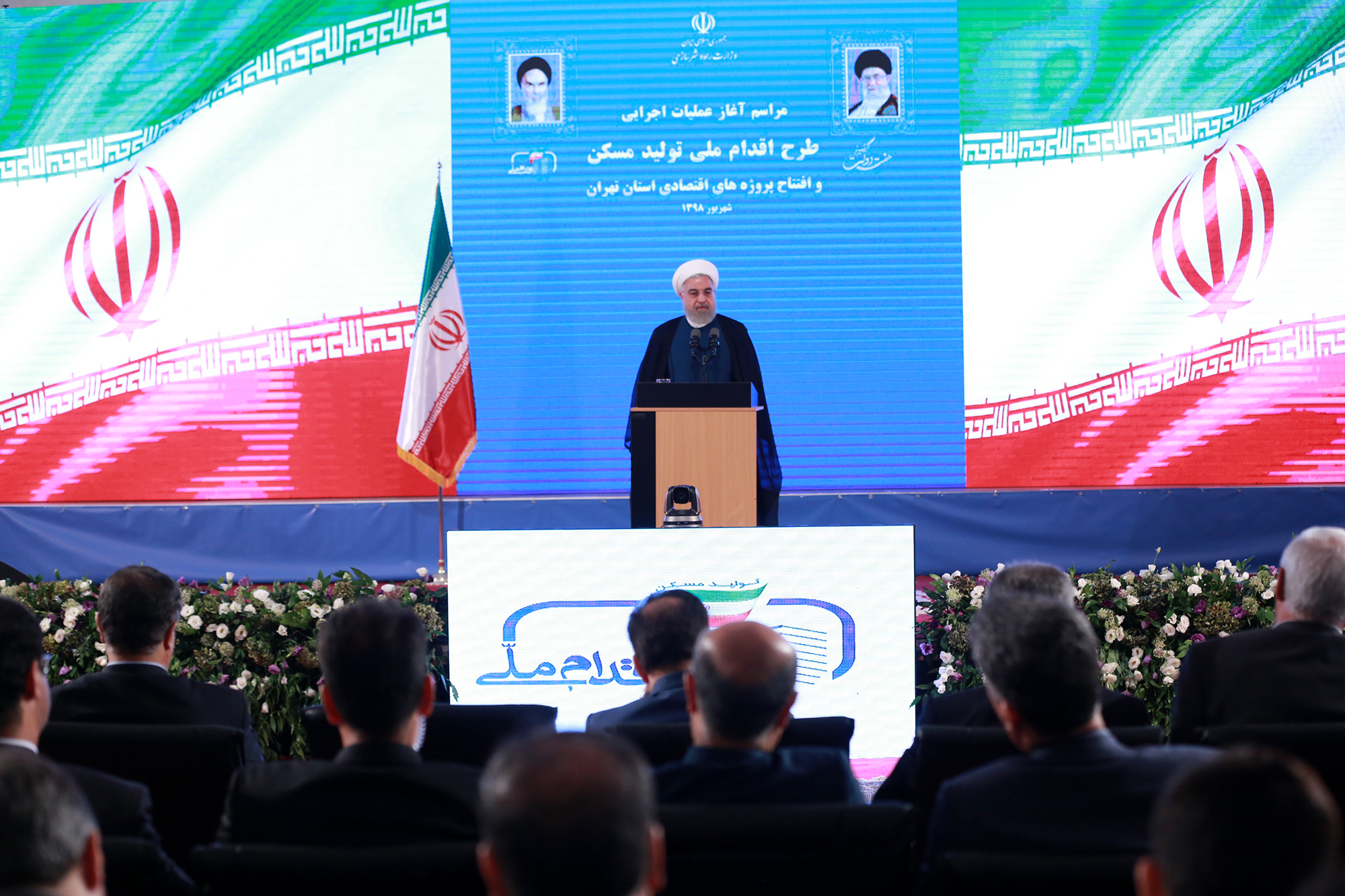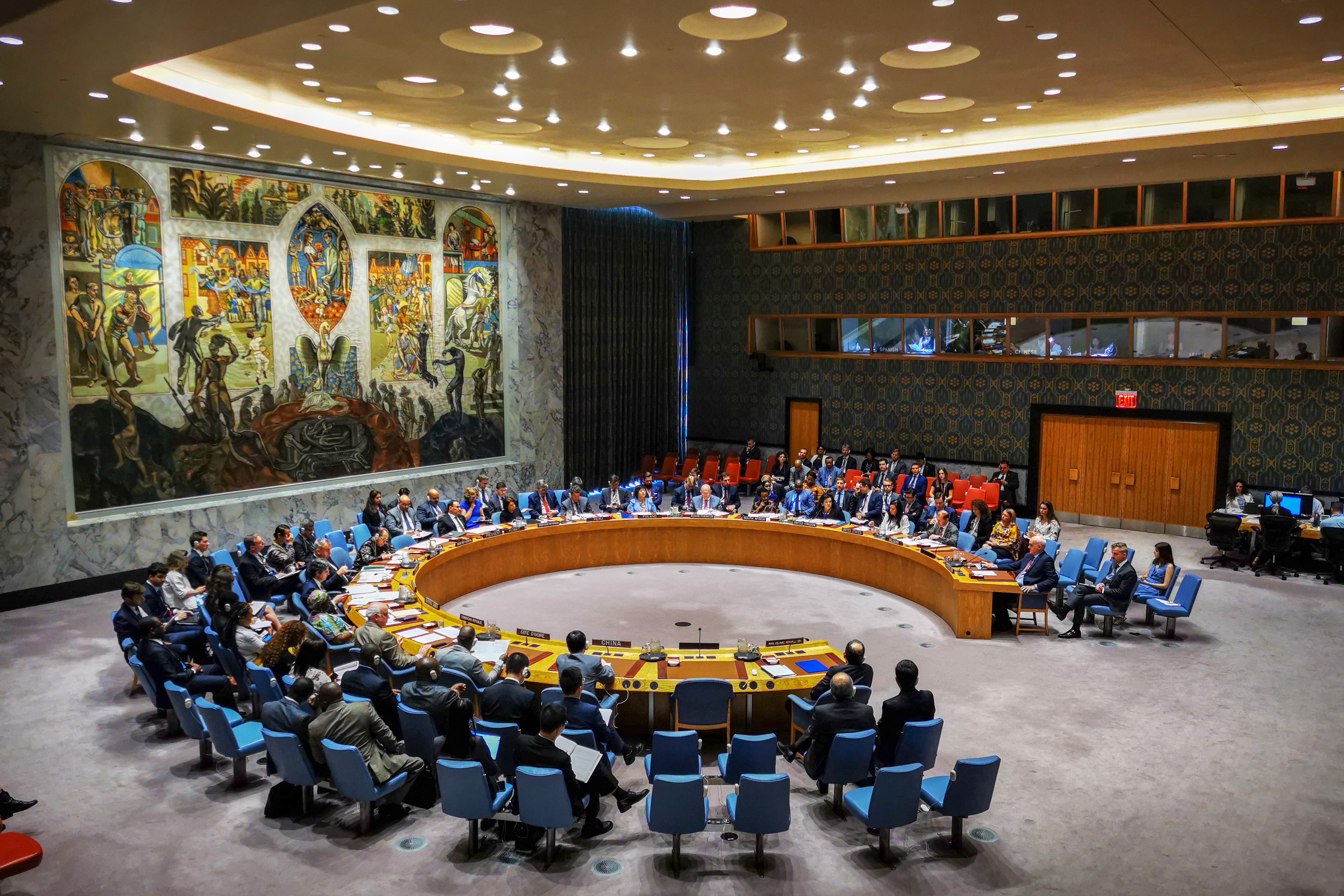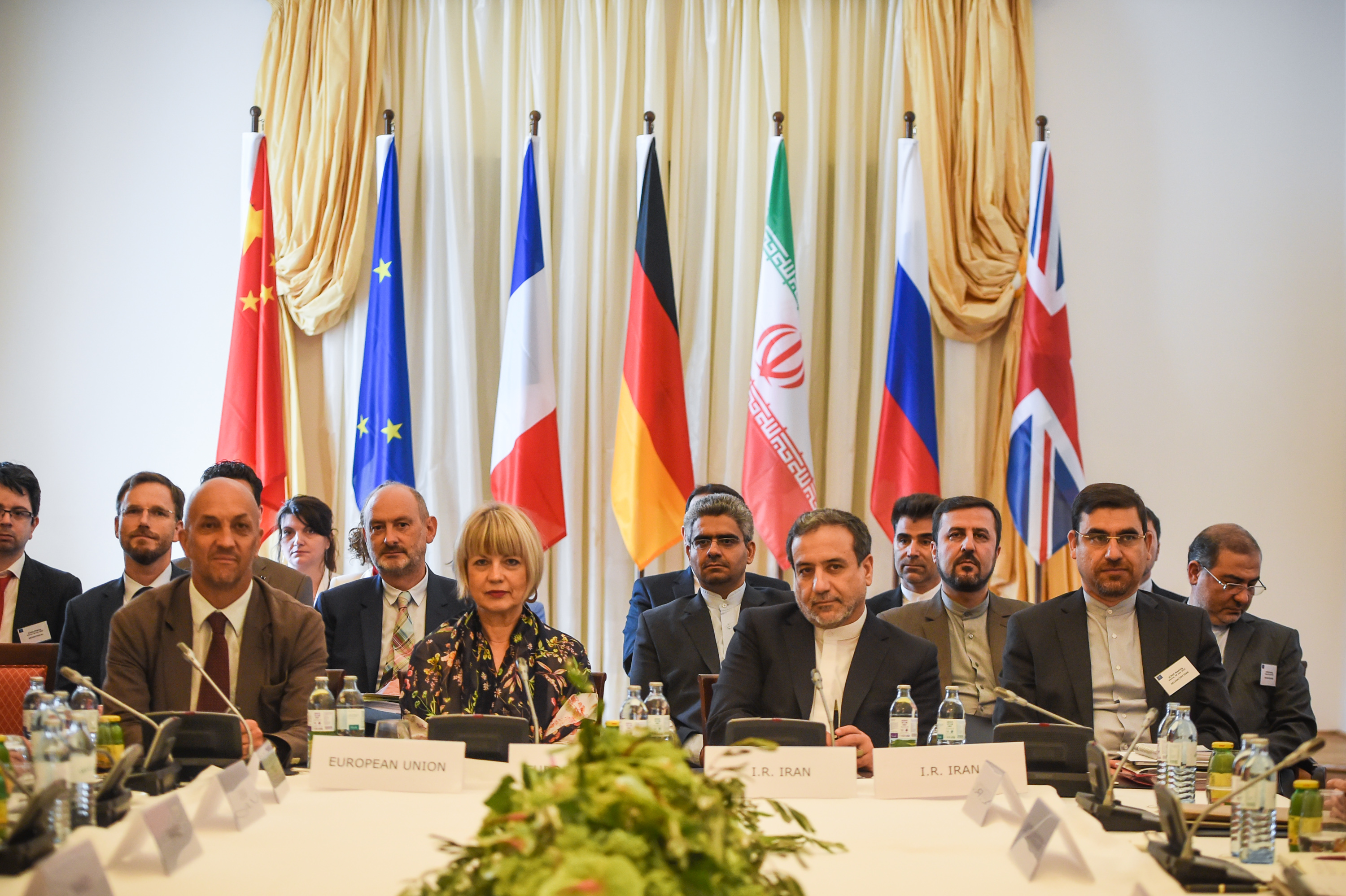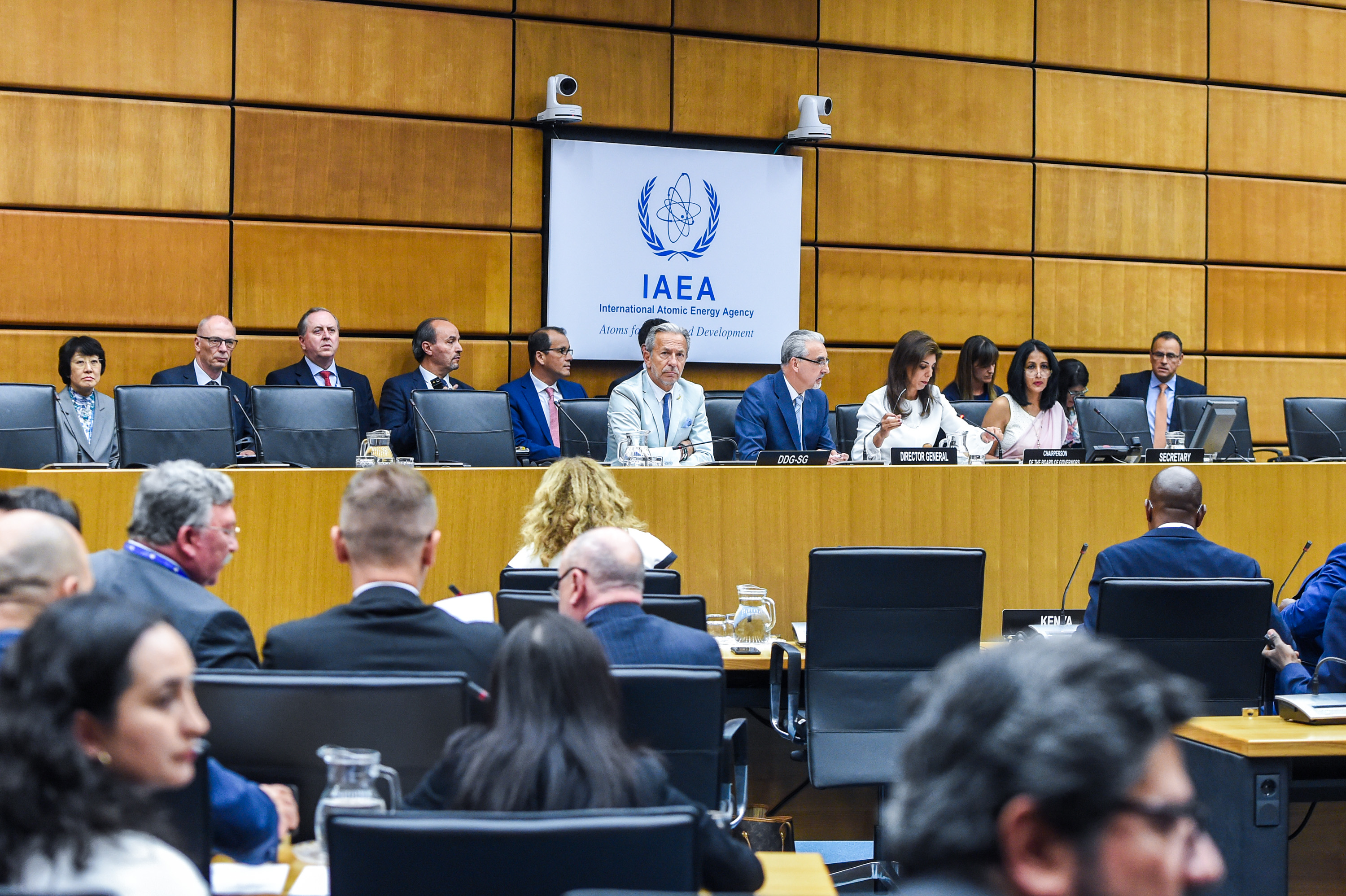U.S. unilateral moves to withdraw from the nuclear deal and put "maximum sanction pressure" on Iran have triggered a global outcry. Analysts pointed out that the standoff between Iran and the United States could further disturb stability in the Middle East.
by Mu Dong, Hassan Rouhvand, Yi Aijun, Zheng Siyuan, Li Binian
TEHRAN, Sept. 9 (Xinhua) -- In response to the latest U.S. sanctions on Tehran and Europe's sluggishness to save the landmark Iran nuclear deal, Iran has recently taken another major step - its third - to further reduce its commitments under the deal.
Analysts said that as the tensions between Iran and the United States have escalated because of U.S. withdrawal from the deal and harsher sanctions on Iran, the stability of the entire Middle East is now under threat.

Iranian President Hassan Rouhani delivers a speech in Tehran, Iran, on Aug. 27, 2019. (Iran's Presidential Office/Handout via Xinhua)
DWINDLING COMMITMENTS
On Saturday, Iran announced the details of its latest move to reduce its commitments to the 2015 nuclear deal, known as the Joint Comprehensive Plan of Action (JCPOA).
Following the announcement, Iran started up advanced centrifuges and activated 20 IR-4 centrifuges and 20 IR-6 centrifuges to boost the country's stockpile of enriched uranium.
"We will witness research and development on different kinds of centrifuges and new centrifuges and also whatever is needed for enriching uranium in an accelerated way," Iranian President Hassan Rouhani said Wednesday, adding Iran's nuclear activities would remain peaceful and will be supervised by the International Atomic Energy Agency (IAEA).
Before that, the country has made two moves to scale back its obligations under the deal to build stockpiles of nuclear fuel and enrich low-grade uranium to a higher level of purity.
On July 1, the IAEA confirmed that Iran's low-grade enriched uranium stockpile has exceeded 300 kg, the limit set in the nuclear deal. On July 7, Iran began to increase the concentration of low-grade uranium enrichment to 4.5 percent of purity from the 3.67-percent level set in the deal.

Photo taken on June 26, 2019 shows the United Nations Security Council's semi-annual briefing on the implementation of Resolution 2231, which endorsed the Joint Comprehensive Plan of Action (JCPOA) on Iran's nuclear program, at the UN headquarters in New York. (Xinhua/Li Muzi)
Tehran's move to restart its nuclear program is, in essence, a retaliation for the widely criticized U.S. withdrawal from the JCPOA, which softened economic sanctions on Iran in exchange for a suspension of the country's nuclear development.
The JCPOA was reached in July 2015 between Iran and the P5+1 -- the United States, Britain, France, Russia, China plus Germany -- together with the European Union. In May 2018, the United States scrapped the pact.
Washington then imposed harsher sanctions on Iran's oil exports and other key industries, as well as on top officials and part of its military, the Islamic Revolutionary Guard Corps.
Furthermore, Iran is disappointed at Europe for the latter's proposed payment channel to facilitate trade between Europe and Iran. Iran says the mechanism has not been able to "practically" offset the impact of U.S. sanctions on Iran's economy, not to mention the U.S. dismissal of French-led efforts to provide Tehran with a 15 billion-U.S. dollar economic lifeline.

Delegates attend a meeting of the Joint Commission of the Joint Comprehensive Plan of Action (JCPOA) in Vienna, Austria, on July 28, 2019. (Xinhua/Guo Chen)
HARSHER SANCTIONS
On Wednesday, the U.S. Treasury Department announced new sanctions against an oil transport network it says is associated with Iran's Islamic Revolutionary Guard Corps.
The latest U.S. sanctions came on top of a flurry of recent punitive actions against the Islamic Republic, including sanctions on its space agency, and an oil tanker transporting Iranian oil.
Ever since Washington quit the nuclear deal last year, it has imposed various punitive sanctions on Iran's energy, banking and shipping sectors, targeting hundreds of individuals, banks, aircraft and vessels.
Thanks to tightening U.S. sanctions, Iran's oil export has witnessed a rapid drop in the past few months, with industry observers and market analysis agencies giving vastly different figures about the changes in the export volume.
Moreover, many European firms have suspended operations in Iran, for fear of being penalized by Washington for doing business with Tehran.
"Unfortunately, the U.S. not only doesn't normalize economic relations with Iran, but punishes others for normalizing economic relations with Iran, which is totally unacceptable," Iran's Foreign Minister Mohammad Javad Zarif said Thursday.
Although harsher U.S. sanctions have exerted mounting pressure on the Iranian economy, some analysts predicted that the country's economy will not deteriorate so quickly.
Iran is less likely to collapse, said Hossein Moghadam, Iranian political commentator and former senior officer of the country's military sector, adding that the country is rich in natural resources and untilled land, ensuring its survival of any sanctions.

The International Atomic Energy Agency (IAEA) Board of Governors holds a meeting in Vienna, Austria, July 10, 2019. (Xinhua/Guo Chen)
GLOBAL OUTCRY
U.S. unilateral moves to withdraw from the nuclear deal and put "maximum sanction pressure" on Iran have triggered a global outcry.
Russian Foreign Minister Sergei Lavrov said on Sept. 2 that Russia believes the situation around the deal is "a direct consequence of the destructive steps" by Washington.
Ilter Turan, professor of International Relations at Turkey's Istanbul Bilgi University, said that it seems that the United States has acted unilaterally without recognizing the findings of international monitoring, which have shown Iran's compliance to the agreement.
The U.S. administration is losing friends. It is putting itself into a situation where fewer and fewer countries listen to it, he said.
These expressions of hegemonism have become major policies the U.S. authorities adopts as a tool to rule the world, said Asadollah Badamchian, secretary-general of Iran's Islamic Coalition Party.
Washington is taking hostile positions toward most countries in the region, said Adnan Abu Amer, head of Department of Political Science and Media at Palestine's Ummah University.
The current U.S. administration "makes it in a state of absolute hostility with all countries in the region such as Iran, Turkey, Qatar and even with its allies as Egypt," Amer said.
Analysts pointed out that the standoff between Iran and the United States could further disturb stability in the Middle East.
"This (U.S.) policy cannot lead to the stability in the region," said Palestinian political analyst Hussam Dajani.
Washington and Tehran are closer to a military conflict than any other time in recent years, said Richard Nephew, a senior research scholar at Columbia University, adding that the current crisis regarding the Iran nuclear deal could and should be addressed diplomatically rather than through containment.
The two sides should "stop doing what they're doing and restart a serious negotiating process. This is not complicated," he said.
(Video reporters: Tang Jiefeng, Cao Peixian, Mu Dong, Lyu Yingxu, Yi Aijun; Video editor: Ma Ruxuan)



